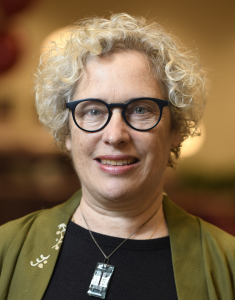By Panirani
Somebody needs to take the lead in the academic version of the #himtoo revolution because we need to speak about sexual assault in the academia. We all know it is pervasive, whether we are victims ourselves or not. By choosing silence, we are all part of the problem.

Sydney University students protest against sexual assault on campus. Source: abc.net.au
Many US universities actively hide instances of sexual assault and harassment, including rape, particularly when the harassment is perpetrated by an individual in a position of power over others. Universities’ administrators deal with sexual assault internally, despite being unqualified to investigate claims and to provide support to victims. In so doing, they erase forensic evidence and protect the perpetrator from facing criminal charges.
Even when rape is recognized (note, however, that the word ‘rape’ is carefully avoided), the rapist regularly faces only “voluntary counseling” or “two or three terms of administrative leave” (often without salary suspension: is this a punishment for or an incentive to rape?). Evidence of the prevalence of this disciplinary tactic is publicly available in title IX reports. Further, many academic policies actively protect rapists by indirectly inhibiting even internal reporting. Controversially, “mandatory reporting” does not require confidentiality, a condition that is likely to decrease reporting by dissuading students from discussing their experiences and concerns in the first place. Other policies actively reinforce less than transparent relationships, contributing to power dynamics that encourage remaining silent about sexual assault. For example, the practice of using recommendation letters, which candidates cannot review, actively undermine transparency: it creates a climate of silence, in which the student must try to please the advisor, and is forever left wondering whether s/he did enough to receive a good reference.
The problem is not limited to the U.S. Many UK universities similarly deter students from reporting sexual assault and harassment. They have internal anonymous mechanisms for reporting, but very little, if anything, comes out of reporting incidents. Universities have a strong incentive to keep cases of sexual violence secret in order to protect the institution’s reputation. The show needs to go on.
Out there, in our centers of higher education, there are plenty of victims (of all genders) who keep silent about being the subject of gender biases and sexual comments, being asked for sexual favors, being touched inappropriately, being assaulted and raped. Yes, it may sound difficult to hear, but it is time to confront this: Universities are not just centers of higher educations, but also sexual assaults cesspools.

Students protest against teachers’ abuses, being blamed by their colleagues and ignored by universities, in Chile. Source: distintaslatitudes.net
There are a lot of professors who feel entitled to sexual favors. Who feel this is a benefit of their profession. In my own experience in academia, after kicking off a professor who cornered me at a conference and forced himself on me, I was violently asked for a fellatio with such words as, “It is your fault, you cannot leave me like this,” and “I deserve it, you made me feel this way.”
And there are plenty of other people, of all genders, who do nothing. And by doing nothing, they actually do plenty. By not speaking up, by not working to change each and every policy that fails to alter the climate of sexual violence, they are enablers. They enable the silence of the victims, the entitlement of the predators, the replication of these violent acts in classrooms and corridors, at conferences and fieldtrips, beyond closed doors and in open spaces.
There are more nuances than I can write here. What exactly is sexual assault, and how the ambiguities of its definition are being exploited by both perpetrators and preservers of the status quo? Which conversations is this “revolution” enabling and what instead results as inhibited? What is the root of this type of violent behavior and how can it be effectively discouraged?
Yet, two simple facts remain. First, we are all involved: we are victims, perpetrators, enablers. Second, we are at a turning point: we need to speak.
We have let the situation go so far that we are scared of the consequences of people eventually speaking up. Which in turn begs the question “who can speak?”: as in all cases of sexual violence, speaking often means to be victimized and blamed: to lose again. Focusing on allowing people to speak remains the only way: we need to create new ways for victims to speak out and for their allies to step off the sidelines and become part of the solution.
We cannot leave this to universities: there are people who are making decisions on title IX policies but are also perpetrators themselves (see the Title IX coordinator and director of student ethics at IU Bloomington implicated in a case of sexual assault).
Here is a possibility (which is not a panacea, but a step forward): building a #himtoo database through which people can report the names of their predators. If and when three (two is a pair, three is a network!) or more accusers name the same person, they are informed and put in touch. If they want to, they can start collective action against their perpetrator. Considering what is happening with Harvey Weinstein and the Israeli private intelligence firm, it would be better to find a developer with the cleanest reputation who won’t manipulate the system.
Any takers? The Pandora’s box is about to be opened.
May the monsters find their special place in hell.
Panirani is a pseudonym





Reblogged this on Political Ecology Network.